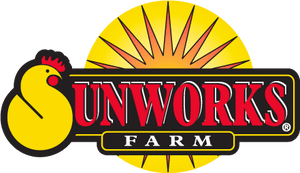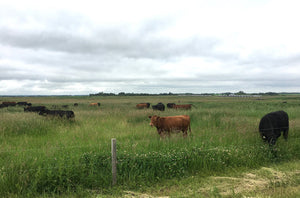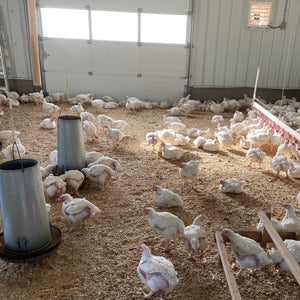Spring Snow and Possible Drought

Although it is the start of spring and many are looking forward to the snow free days, we were very excited to see the snow fall this week. This fall and winter’s warm dry weather has drastically depleted the soil moisture leading to concern about another severe spring drought. Because of this we are grateful for every drop of moisture regardless of the form it comes in.
As farmers we are already making plans for another year of drought.
Hay: For the cattle we always try and bale lots of certified organic hay in the summer so we are prepared for all weather possibilities. How much hay we get every year again is dependent on the weather. This year in order to ensure we have enough feed, we have rented more organic hay land in order to increase the number of bales we can get even if we are in drought. The amount of hay we need every year is also dependent on the weather. A long winter, a slow spring melt, a dry winter or dry spring can all delay the fresh new grass in the pasture from growing and cause us to feed the cattle hay for a longer period of time.
Increasing the amount of available pasture: During last years spring drought we also fenced off many of our hay lands in order to increase the amount of grass we could put animals on. While grazing hay land is not ideal it will help us be prepared for any future droughts.
Straw: For our animals we use alot of straw as bedding. The cattle and pigs are given lots of straw in the winter to keep them warm and dry. The pigs also use straw throughout the year, as we use it for bedding for them when they farrow (give birth). Drought can affect the availability of organic straw so we try and make sure we have enough straw purchased from organic grain farmers to see us through a year of drought.
Irrigation: Two years ago and last year we purchased simple irrigation equipment for our pasture. This was in response to dry periods and drought. We plan on starting up this equipment as soon as possible this spring in order to try and give the grass more ground moisture to use. This water comes from one of three, large and extremely deep dugouts that are on our land. Even with little spring surface runoff these dugouts have ample water for our animals to drink and the irrigation of our pasture.
Flexibility: The most important thing when dealing with drought is to be flexible so you can adapt to the changing weather conditions. Some of this flexibility can include delaying putting the cattle, chickens and pigs on pasture for a short time in order to give the grass a chance to establish itself and establish a good root system. All animals, chickens, cattle and pigs love the tender fresh green grass shoots, however if this tender grass is grazed too short or is grazed heavily under drought conditions this can stunt the grass resulting in less grass later on. Flexibility also includes increasing the size of pasture the cattle are given at any one time and moving them more frequently onto new pastures. Being able to change the space of our pastures is a huge advantage to the time controlled grazing system we have been using for 30 years. This allows less stress on the grass and allows it to recover from grazing faster.
Although we are preparing for a possible drought we are still hopeful that we will receive lots of spring rain to replenish the dry soil. Careful management and planning allows us to be flexible and adapt as best we can to whatever rain we receive.
Your Farmers
Ron and Sheila
- Sunworks Farm






